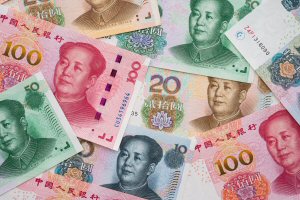
The news that MUFG Bank – the largest banking group in Japan – has won approval to settle transactions in renminbi, the currency of Mainland China, is being seen by observers as a clear sign of a warming in relations between Tokyo and Beijing, as well as an indication of greater cooperation to come. In particular, the approval has been interpreted in certain quarters as a sign that Japan might be on the verge of signing up as a partner to the Belt and Road Initiative, China’s ambitious global infrastructure development and trade-facilitation programme.The move is seen as particularly significant as not only is MUFG the first Japanese financial institution to be approved as a renminbi clearing bank by Mainland Chinese monetary authorities, but it is only the second non-mainland-linked bank to be granted such an entitlement. The only other non-mainland institution to enjoy such a privilege is JP Morgan. The New York-headquartered investment bank received the go-ahead in February last year, a move widely interpreted as part of Beijing’s bid to internationalise the use of the currency amid hopes it may one day rival the US dollar in terms of global ubiquity.The move to extend a similar right to MUFG followed the G20 Summit in Osaka late in June, when Chinese President Xi Jinping and Japan’s Prime Minister Shinzo Abe held a number of one-on-one meetings on the sidelines of the event. It is believed these sessions paved the way for the new arrangement.The deal is significant in that Japanese businesses can now settle any renminbi-denominated transactions via MUFG without having to route them through a mainland-located financial institution. It also means the Japanese bank will be entitled to source renminbi directly from its mainland-based branches whenever a shortage of the currency may occur in global financial markets.Many market observers are now focused on whether this new arrangement with MUFG will presage increased investment in the mainland by Japanese businesses. In particular, the move could mark the beginning of greater economic cooperation between the two nations.The Belt and Road would provide the obvious framework for any such cooperation, but Japan has so far held off from participating in or even formally endorsing the programme. Last year, though, in an earlier indication of a possible change of tack, the two countries announced plans to push ahead with a new public-private committee that would coordinate joint overseas infrastructure projects – notably a major Thai rail link development programme.For both countries, further progress on such overtures would have clear benefits. For Japan, greater economic cooperation with its near neighbour could have marked appeal, notably in the tourism sector, having received about 8.4 million mainland visitors last year – a huge figure but only a tiny proportion of the 149.7 million outbound mainland-sourced tourists recorded last year.In the mainland, a more conspicuous alliance with Japan could help bolster prospects for the Belt and Road, while undermining suggestions that the programme was more about Beijing's soft-power ambitions and inclinations to build its sphere of influence.
Related link
HKTDC Research


